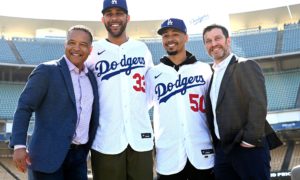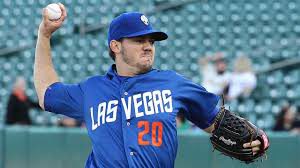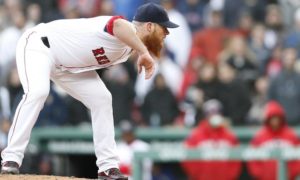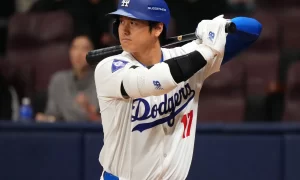How Much Money has Yasmani Grandal Cost Himself?
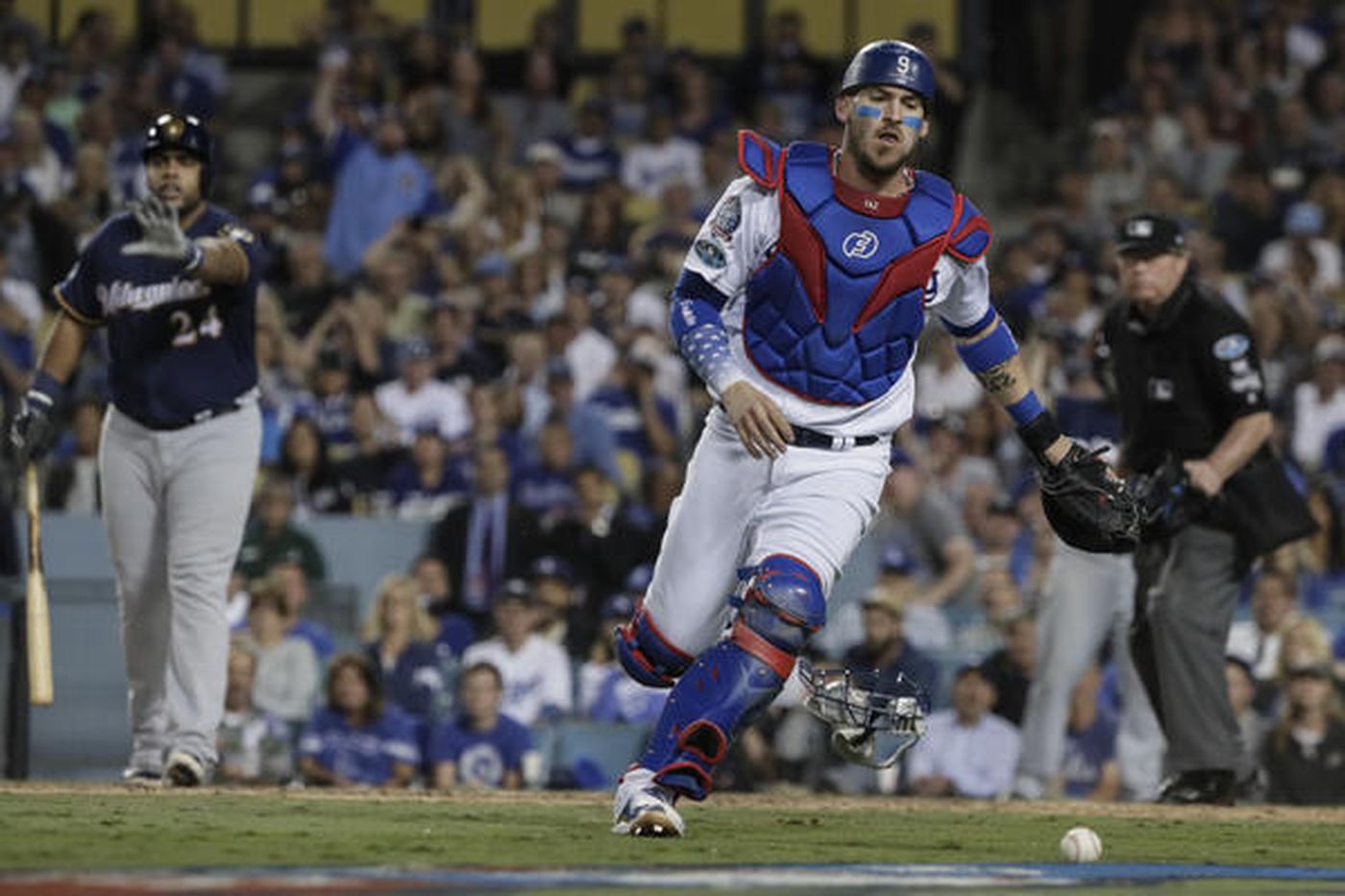
Los Angeles Dodgers catcher Yasmani Grandal has been the subject of one of the biggest stories of the NLCS- and not in a good way. In Game One, he committed two passed balls and two errors. He didn’t start in Game Two, though he did pinch hit and ground into a double play. He was back in the lineup in Game Three, and allowed another passed ball. As a result, he didn’t start again in either the fourth or fifth game.
This is all very bad for a soon-to-be free agent catcher. Generally, teams prefer catchers who can actually catch. Grandal is normally quite good at fielding his position but seems to have fallen apart in the postseason. Free agency is nearly impossible to predict with any accuracy, but let’s take a look at how his price tag might have suffered in light of recent events.
The Good Grandal
First of all, it’s important to note that Grandal is one of the top catchers in baseball. This season, he slashed .241/.349/.466. His 125 wRC+ was third best in baseball among catchers, trailing only Wilson Ramos and J.T. Realmuto. Ironically, his defense is just as appealing as his offense. According to StatCorner, he was the second-best pitch framer in MLB this year, just behind Jeff Mathis. He’s apparently comfortable in that position; he also finished second in pitch framing runs in 2017 and 2016. It’s fair to say that he’s the best, most consistent pitch framer in baseball. By fWAR, he was the second best catcher in MLB this year, with his 3.6 trailing only Realmuto’s 4.8.
If those numbers don’t sound that impressive to you, it’s because they kind of aren’t. The fact that only one catcher in all of baseball exceeded 4 fWAR shows how bottomed-out the position is right now. It also shows how in-demand a good catcher should be. In theory, every team except the Marlins (huh?) would improve by signing Grandal, who turns 30 in November. Of course, not every team will try to sign him; the Yankees aren’t going to replace Gary Sanchez and several rebuilding teams are content not to spend money on pricey free agents. There should still be plenty of competition for his services, though. MLB Trade Rumors ranked him the #9 overall free agent in their midseason power rankings. MLBTR’s Jeff Todd examined Grandal’s free agency more thoroughly, coming to the following conclusion:
At a minimum, though, Grandal seems clearly to be trending towards a contract that includes at least four guaranteed seasons and an annual salary in the $12MM to $16MM range.
What About the NLCS?
That was all before this NLCS fiasco. Three passed balls and two errors in two games started might cause some to reconsider handing out the $48M guaranteed, as Todd suggested as the minimum. However, there are two critical factors worth noting:
- The postseason is the ultimate small sample size bias. Sure, everything is more magnified in October on national TV, and the stakes are much higher. In the end, the players are still just playing a handful of baseball games though, and the minuscule amount of data we collect from the playoffs means virtually nothing compared to the regular season (at least in terms of player evaluation). Grandal is one of the best all-around catchers in baseball, and he has been for several years. There’s nothing he can do in the NLCS that can change that fact, short of some gruesome injury (heaven forbid).
- While passed balls and errors are very visible, they mean almost nothing compared to the value of pitch framing. According to some very good research at Baseball Prospectus, the worst catchers at preventing passed balls and wild pitches cost their teams no more than about four runs over the course of an entire season. Yeah, it looks bad when one of those runs allowed is during the NLCS, but it really doesn’t even add up to a single win gained or lost over a full year. On the other hand, Grandal has saved 56.8 runs over the last three years with his outstanding pitch framing alone (according to StatCorner). Even with pitch blocking factored in, Grandal is a tremendous defensive catcher.
Free Agency
Given what we know about postseason sample size and overall catcher defense, Grandal’s value shouldn’t take a hit in free agency. “Shouldn’t” is bolded because it does NOT mean the same thing as “won’t.” Presumably, any front office that would prospectively sign Grandal knows how valuable he is, and how little the NLCS impacts his future value. However, that doesn’t mean they won’t try to use it against him in negotiations.
Even though they know better, it’s easy to imagine some GM saying, “Well, we just can’t offer you $50M because we’re a little worried about you collapsing in the postseason. Here’s an offer of $30M over three years- take it or leave it.” It’s not fair at all, but free agency has never been fair. After all the hijinks and rumors surrounding last year’s depressing free agency, it’s quite possible that Grandal finds a diminished market for his services. The NLCS shouldn’t have anything to do with that, but if teams can use it as leverage, they very well may.

